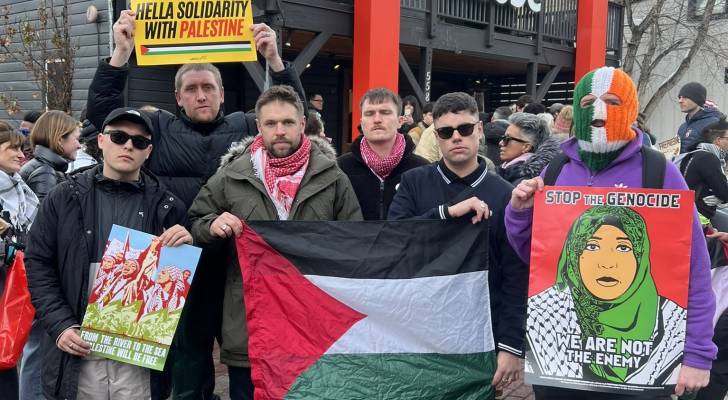Irish rap group Kneecap attending a vigil for Gaza in the United States. (January 2024) (Photo: Kneecap/X)
Hungary bans pro-Palestine Irish rap group Kneecap from performing at festival
The Hungarian government has officially banned the Irish rap group Kneecap from performing at the upcoming Sziget Festival, citing accusations of "antisemitic hate speech and open praise for Hamas and Hezbollah".
The decision, announced on July 24, 2025, bars the Belfast-based trio from entering Hungary for three years, with authorities stating their presence would pose a "serious threat to national security".
Government spokesperson Zoltan Kovacs confirmed the ban, emphasizing Hungary's "zero-tolerance" policy toward antisemitism and its stance as a "strong ally of Israel within the EU".
An official statement declared that "Hungary has no place for artists who spread hatred, glorify massacres or dishonor victims under the guise of free expression".
The EU Combating Antisemitism Commission and the “Israeli” Ambassador to Hungary have both praised the ban.
Kneecap, known for their Irish nationalist messaging and pro-Palestinian stance, vehemently denies supporting terror groups, asserting they "condemn 'all attacks on civilians, always'".
The band has described the allegations as a "smear campaign" aimed at silencing their political commentary on the conflict in Gaza.
Frontman Mo Chara faces a terrorism-related charge in the UK for allegedly displaying a Hezbollah flag at a 2024 concert, an accusation he denies.
The group has also faced controversy and cancellations following performances at Coachella and Glastonbury, where they accused “Israel” of war crimes and genocide.
Sziget Festival organizers expressed regret over the "unprecedented" ban, stating it was "unnecessary and regrettable".
While condemning hate speech, the festival affirmed its commitment to artistic freedom, noting that "cancel culture and cultural boycotts are not the solution".
They voiced concerns that the government's decision could damage both the festival's and Hungary's international reputation.




